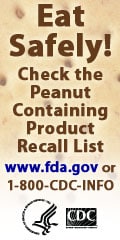As children enter their pre-teen years, their world becomes an exciting place of new experiences and newfound freedoms. But adults know that adolescence also brings new risks and potential dangers, and parents can’t be there every minute.
There is something parents can do to protect their pre-teens, now and for years to come: make sure their children are vaccinated against potentially life-threatening diseases such as meningitis, whooping cough, and, for girls, cervical cancer.
Vaccines are not just for infants
Many parents don’t realize that doctors recommend several immunizations for 11- and 12-year- olds.
“The protection provided by some childhood vaccines wears off over time, and as they get older, young people are at risk of exposure to different diseases at school or camp or in other new situations,” says Dr. Anne Schuchat, director of CDC’s National Center for Immunization and Respiratory Diseases.
“What’s more, research shows that pre-teens generally do not get preventive health care, visiting the doctor only when they are sick. We at CDC urge parents to schedule a routine check-up for their 11- or 12-year-olds to discuss their child’s health and development and to talk with the doctor about recommended vaccinations.”
What vaccines do pre-teens need?
Three safe and effective vaccines are recommended for 11- or 12-year-olds. All pre-teens should receive Tdap, which combines protection against tetanus, plus highly contagious diphtheria and whooping cough (also known as pertussis), into one shot; and MCV4 to protect against meningitis and its complications. Pre-teen girls should also receive the HPV (human papillomavirus) vaccine – the first-ever vaccine to prevent a disease that kills almost 4,000 American women every year: cervical cancer.
“The vaccine works best when it is given before the onset of sexual activity,” says Dr. Schuchat. “And at age 11 and 12, girls have the best and strongest immune response to this vaccine.” The American Academy of Pediatrics, the American Academy of Family Physicians, and the CDC support these recommendations for pre-teens.
Parents should also make sure their children are up-to-date on other immunizations such as influenza, chickenpox (varicella), hepatitis B and measles-mumps-rubella (MMR). Depending on their health and medical history, some pre-teens may require additional shots.
Information for Parents
To learn more about these vaccines and the diseases they prevent, visit the CDC’s pre-teen vaccine website at www.cdc.gov/vaccines/pre-teen or call (800) CDC-INFO.
Reproduced with the kind permission of the Centers for Disease Control and Prevention.
skip to main |
skip to sidebar
This is the blog of the Amherst Public Health Department. Here you'll find public health updates, links to health-related sites, blog posts by employees of the Amherst Public Health Department, and various articles of interest. Feel free to contact us by email via a link in our profile. Please bookmark this page and visit often!
About Us
- Amherst Health Department
- Amherst, MA, United States
- The mission of the Amherst Board of Health, working through the Health Department, is to promote the health and well-being of our community with special emphasis on eliminating health disparities. We fulfill this mission through our core functions: assessment, assurance, promotion, and policy development.
Twitter Updates
Blog Archive
-
▼
2009
(102)
-
▼
February
(12)
- Peanut Butter Recall Update
- Bliss Bros. Dairy Recalls Ice Cream Products Due t...
- Health Habits of Adults Aged 18-29 Highlighted in ...
- Flu Vaccine Still Available in Amherst
- Flu Activity on the Rise in Massachusetts
- Did You Know Your Pre-teen Needs Vaccinations Too?
- National MRSA Education Initiative
- CDC Encourages Screening for Breast, Cervical and ...
- Help Seniors Live Better, Longer: Prevent Brain In...
- Sniffle or Sneeze? No Antibiotics Please
- The Latest Information on the Salmonella Outbreak
- Precautions for Extreme Cold Weather
-
▼
February
(12)
Labels
african american health
(1)
alcohol
(1)
animals
(1)
asbestos
(1)
asthma
(1)
cancer
(2)
CDC
(14)
children
(5)
diabetes
(1)
elder safety
(1)
events
(2)
family
(1)
FDA
(6)
fitness
(3)
food insecurity
(2)
food safety
(1)
H1N1 Influenza
(24)
health care
(1)
health disparities
(2)
Hispanic health
(1)
infectious disease
(5)
influenza
(9)
Latino health
(1)
medication disposal
(1)
MRSA
(2)
obesity
(1)
pandemic flu
(1)
pregnancy
(1)
public health
(5)
rabies
(1)
recalls
(27)
safety
(2)
salmonella
(11)
screening
(1)
STDs
(1)
technology
(1)
teenagers
(3)
Tick-borne illnesses
(1)
vaccinations
(2)
West Nile Virus
(1)
winter safety
(2)
young adults
(2)
Other Official Amherst Blogs
Amherst Resources
Local Health Resources
Other Local Health Dept Blogs
Health & Fitness Links
- America on the Move
- American Cancer Society
- American Diabetes Association
- American Medical Association
- BlackDoctor
- Fitness.gov
- Health.gov
- HealthFinder.gov
- HealthierUS.gov
- Healthline.com
- Healthy People 2010
- KidsHealth.org
- Mass In Motion
- MedlinePlus
- Nat'l Center for Complementary & Alternative Medicine
- National Health Information Center
- New York Times Wellness Blog
- SparkPeople
- WebMD
- Wellness.com
- Wellsphere.com
- WomensHealth.gov
Public Health Links
- American Public Health Association
- CDC Travelers' Health Website
- Centers for Disease Control
- Food and Drug Administration
- Food and Drug Administration
- GlobalHealth.gov
- MA Dept of Public Health
- MA DPH Public Health Blog
- Nat'l Assoc. of City & County Health Officials
- Nat'l Center for Farmworker Health
- National Institute for Mental Health
- National Institutes of Health
- Office of the Surgeon General
- Pioneer Valley Red Cross
- U.S. Department of Health & Human Services
- U.S. Food & Drug Administration
- Unnatural Causes
- World Health Organization





